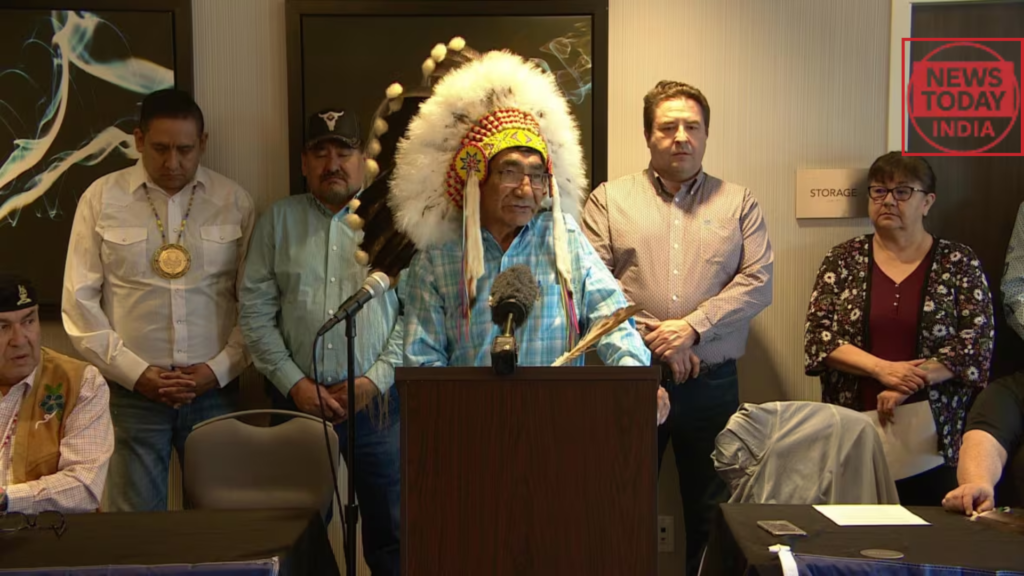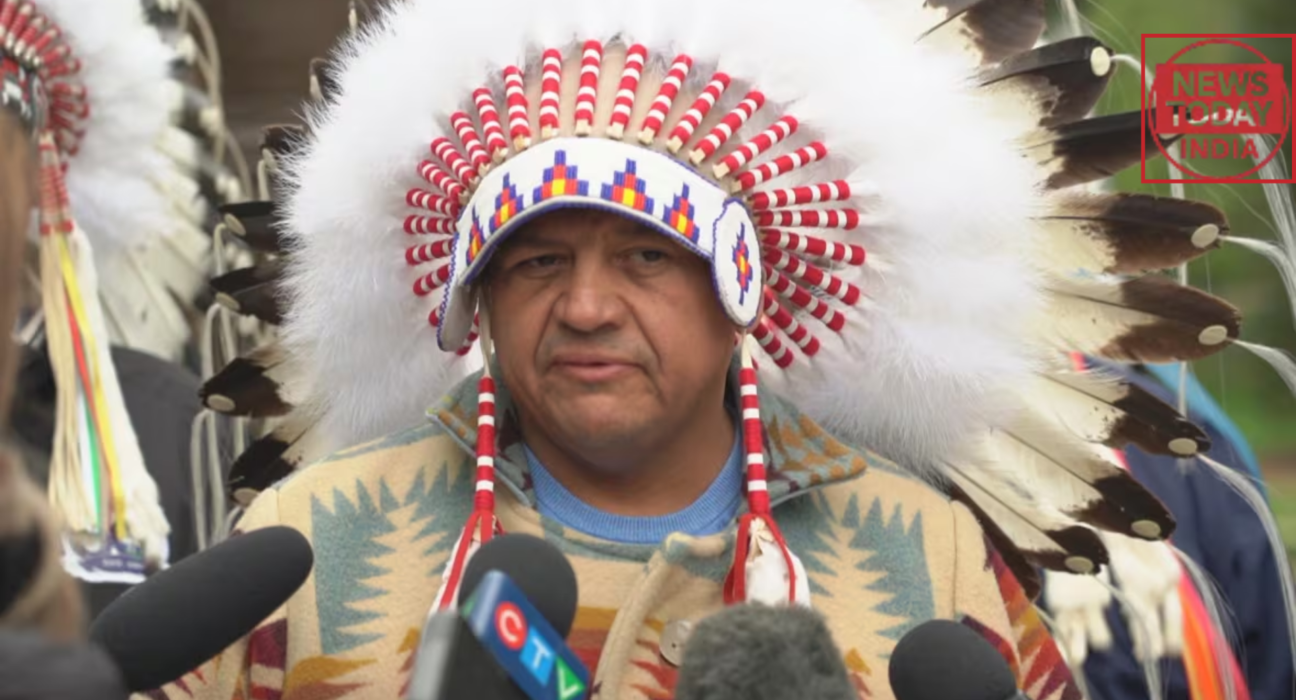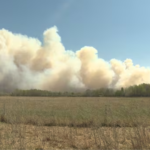The Onion Lake Cree Nation, a First Nation community living on the border of Alberta and Saskatchewan, has decided to restart a legal fight against Alberta’s Sovereignty Act. This law, passed in December 2022 by Alberta’s United Conservative Party (UCP) government, led by Premier Danielle Smith, lets the province challenge federal laws it believes harm Alberta’s interests. The Onion Lake Cree Nation says this law threatens their treaty rights, which are special agreements made with the Canadian government long before Alberta became a province. Here’s a simple and detailed look at what’s happening, why it matters, and what could come next.

What is the Alberta Sovereignty Act?
The Alberta Sovereignty Act, officially called the Alberta Sovereignty Within a United Canada Act, was created to give Alberta more power to say “no” to federal laws or policies it doesn’t like. The law allows Alberta’s government to declare a federal rule unconstitutional or harmful and tell provincial organizations, like police or schools, not to follow it. Passed in December 2022, the law has not yet been tested in court to see if it’s allowed under Canada’s Constitution. Many people, including the Onion Lake Cree Nation, worry that this law could harm their rights and create conflict between Alberta and the federal government.
Why is Onion Lake Cree Nation Suing?
The Onion Lake Cree Nation believes the Sovereignty Act goes against their treaty rights, which are protected by Canada’s Constitution. These rights come from agreements made with the British Crown (now the Canadian government) over 100 years ago. They include the right to hunt, fish, trap, and practice traditional ceremonies without interference. The First Nation says Alberta’s law could weaken these rights by challenging the federal government, which is responsible for upholding treaties.
The lawsuit was first filed in December 2022, right after the Sovereignty Act became law. At the time, Onion Lake Cree Nation hoped to talk with Alberta’s government to solve the issue without going to court. But they’ve now decided to move forward with the lawsuit because of a new law, Bill 54, passed in 2025. This bill makes it easier for Alberta to hold a vote, called a referendum, on big issues—including possibly leaving Canada. Chief Henry Lewis of Onion Lake Cree Nation says these laws show a “separatist agenda” that ignores Indigenous rights and threatens their way of life.
What is Bill 54, and Why Does It Matter?
Bill 54, also known as the Election Statutes Amendment Act, is a new Alberta law that lowers the number of votes needed to start a referendum. A referendum is a public vote on a specific question, like whether Alberta should stay in Canada. Onion Lake Cree Nation and other First Nations worry that this law, combined with the Sovereignty Act, shows Alberta is moving toward separating from Canada. They believe this could harm their treaties, which were made with the Canadian government, not Alberta. Chief Lewis says these laws are being used to “control public opinion” and “intimidate First Nations,” making it urgent to fight back in court.
What Does the Lawsuit Want to Achieve?
The Onion Lake Cree Nation’s lawsuit asks the court for two things:
- A temporary injunction to stop Alberta from using the Sovereignty Act against the First Nation or its members while the case is being decided.
- A permanent injunction to block the law completely if the court agrees it violates their treaty rights.
Their lawyer, Robert Hladun, has given Alberta’s government until June 6, 2025, to respond to the lawsuit in court. If Alberta doesn’t file a defense by then, the case could move forward without their input.
Alberta’s Response to the Lawsuit
Alberta’s government, led by Premier Danielle Smith, says it respects Indigenous treaty rights. On May 14, 2025, they added a new clause to the Sovereignty Act promising to protect these rights. A spokesperson for the premier’s office said the government will “always recognize, protect, and honour treaty rights.” They also said they will respond to the lawsuit in court soon. However, Onion Lake Cree Nation doesn’t trust these promises. They believe the Sovereignty Act still threatens their rights and are pushing forward with the lawsuit to protect their community.

Protests and Support from Other First Nations
On May 15, 2025, Onion Lake Cree Nation joined other Alberta First Nations and people who disagree with Premier Smith’s policies for a protest at the Alberta legislature in Edmonton. They gathered to speak out against the Sovereignty Act and Bill 54, showing that many Indigenous communities share these concerns. Other First Nations are also considering their own lawsuits, and experts like Matthew Wildcat, a professor at the University of Alberta, say Indigenous voices must be part of any talk about sovereignty in Canada. He points out that treaties were made long before Alberta existed, so First Nations have a strong legal claim to their rights.
Why This Matters to Everyone
This lawsuit is about more than just one First Nation. It’s about how Alberta’s laws could affect all Indigenous communities in Canada. The case could decide whether provinces can pass laws that challenge federal authority and Indigenous treaties. If Onion Lake Cree Nation wins, it could stop Alberta from using the Sovereignty Act against them and set an example for other First Nations. If Alberta wins, it could mean more provinces try similar laws, which might lead to bigger conflicts across Canada.
The case also touches on the idea of Alberta separatism. Some people in Alberta want the province to have more independence or even leave Canada. But First Nations like Onion Lake Cree Nation say their treaties are with Canada, not Alberta, and any move toward separation would ignore their rights. This makes the lawsuit a key moment in the debate over Alberta’s future and Indigenous rights.
What Happens Next?
The next step is for Alberta’s government to file its response by June 6, 2025. After that, the case will move through the Court of King’s Bench, where a judge will decide if the Sovereignty Act breaks Canada’s Constitution or violates treaty rights. This could take months or even years. In the meantime, Onion Lake Cree Nation and other First Nations are continuing to speak out, both in court and through protests, to protect their rights and way of life.
Conclusion
The Onion Lake Cree Nation’s fight against Alberta’s Sovereignty Act is a big moment for Indigenous rights in Canada. By restarting their lawsuit, they’re standing up for their treaties and challenging a law they believe threatens their community. With the support of other First Nations and growing public attention, this case could shape how Alberta, and maybe all of Canada, balances provincial power with Indigenous rights. Keep an eye on this story as it develops—it’s an important one for everyone who cares about fairness, treaties, and Canada’s future.







